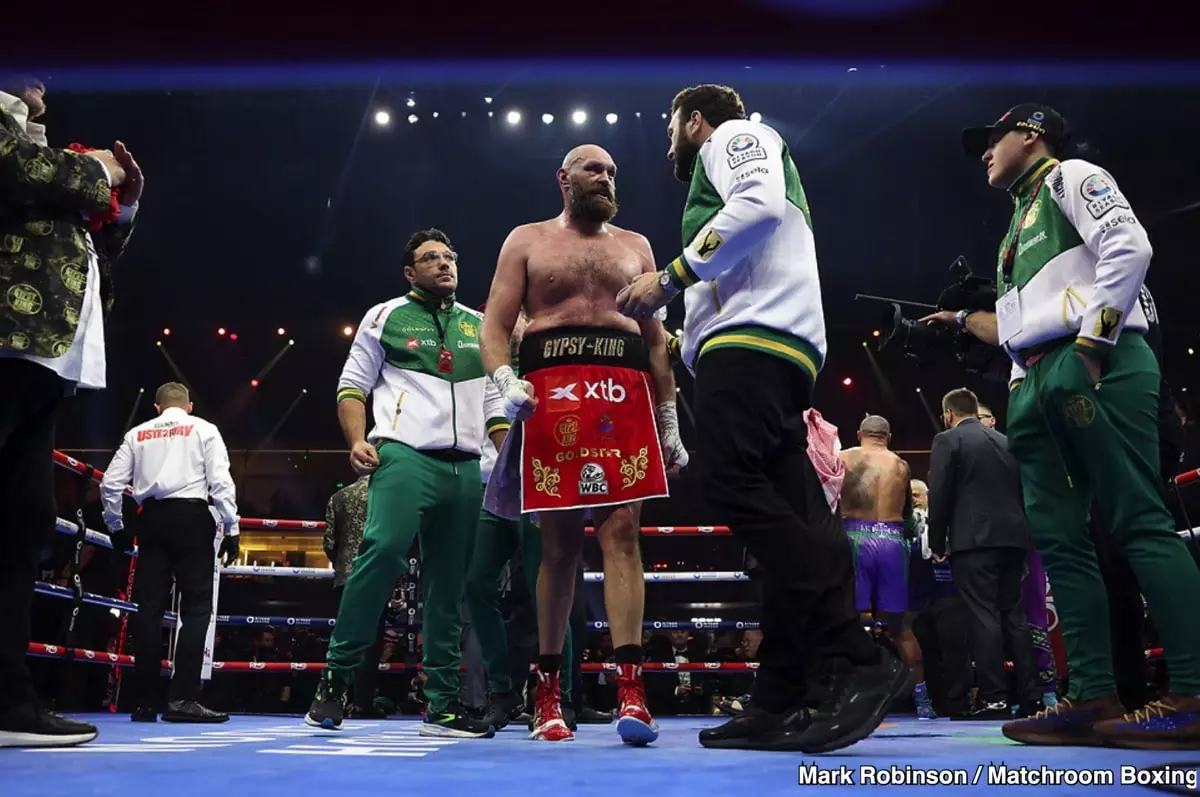The boxing world was abuzz this past Saturday night as Tyson Fury faced Oleksandr Usyk in their highly anticipated rematch in Riyadh. The bout, however, turned out to be a stark contrast to Fury’s previous encounters, particularly with Usyk, and showcased a worrying decline in the skills and athleticism of the former WBC heavyweight champion. Fury’s loss by a unanimous decision, scored 116-112 by all three judges, reflects not just the outcome of the fight but potentially a pivotal moment in his career.
In observing the fight, it became evident that Fury struggled significantly compared to their first encounter in May. His movements appeared sluggish and cumbersome, reminiscent of an athlete past his prime, battling both physical decay and a strategic miscalculation. While Fury had enjoyed great success in the past, even dethroning Wladimir Klitschko in 2015, his performance in the rematch left much to be desired. Usyk’s superior speed and agility stood in stark contrast to Fury’s increasingly labored approach.
Fury managed to land a few punches throughout the twelve rounds, yet they were seemingly overshadowed by Usyk’s agility and precision. The dynamic of the fight was quite telling; instead of dictating the pace and showcasing his size advantages, Fury was left to play catch-up, reminiscent of an older fighter attempting to keep pace with a younger opponent. Questions arise about his strategic choices—was his weight gain intended to leverage a size advantage, or was it a miscalculation that backfired against a significantly quicker opponent?
One cannot ignore the apparent dissonance between Fury’s perception of the fight and the observations of those watching. Fury confidently asserted that he believed he had won, claiming a three-round advantage. This perspective on the match raises red flags regarding his self-awareness and tactical evaluation. For such a veteran of the sport, showcasing confidence is crucial, but this confidence must be rooted in reality. Fury’s approach in the later rounds came off as complacent; he seemed unwilling to exert the necessary urgency, perhaps due to a misjudged understanding of the scorecards.
Moreover, this sense of denial may not just be an isolated incident but could also reflect a pattern seen in previous bouts. Fury’s inclination to dismiss his opposition’s effectiveness can lead to strategic shortsightedness, as demonstrated when he failed to adjust his game plan accordingly when under pressure. The question remains: is this a cautionary sign of a fighter misaligned with his current capabilities and shortcomings?
The efficacy of a trainer is crucial, especially during high-stakes matches. Tyson Fury’s trainer, SugarHill Steward, appeared to miscalculate Fury’s needs during the fight. Instead of instilling a sense of urgency in the final rounds, Steward’s advice fell short, leading Fury further into his downward spiral. The instruction to come forward and apply pressure was inadequate when the reality was that Fury needed a knockout to salvage any hope of victory.
In retrospect, it is alarming that no clear directive to pursue a game-changing strategy was voiced in the eleventh and twelfth rounds, signifying a deeper failure in the corner. This disconnect begs the question of whether Fury’s age and the weight of experience have dulled his fighting instincts, as much as it questions Steward’s effectiveness as a trainer in such pivotal moments.
Looking ahead, the path for Tyson Fury is fraught with challenges, and his immediate future remains uncertain. Speculation grows regarding a potential retirement following a rumored series of fights against Anthony Joshua. If this indeed marks the closing chapter of Fury’s fighting career, he will leave behind a legacy filled with remarkable highs but now marred by the question of whether he can overcome the limitations of age and physical decline that plague him.
The Usyk rematch was not just a loss; it served as a reflective moment for Fury—a once-mighty champion who must now grapple with his legacy, self-perception, and the reality of fading prowess in the ring. Whether he can reclaim his former glory remains to be seen, but the Usyk rematch underscores the need for introspection and perhaps a reevaluation of both strategy and approach.

